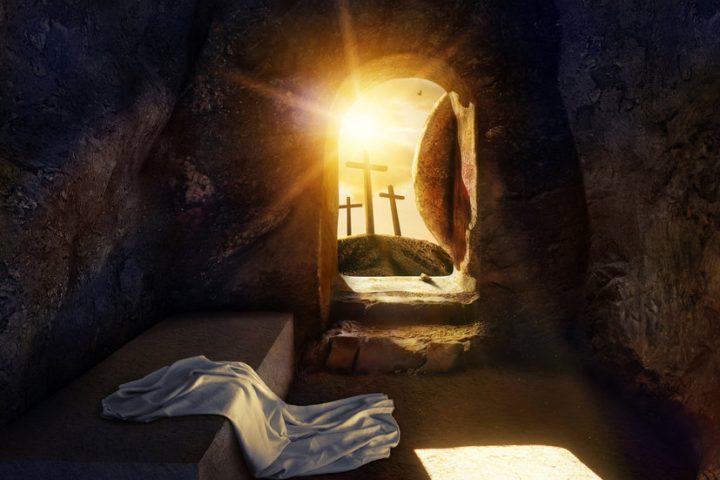“In our worship there should be the power of the supernatural, which brings home a sense of God.” — Bryan Green
“Yes, worship of the loving God is man’s whole reason for existence.” — A. W. Tozer
“To worship is to quicken the conscience, by the holiness of God, to feed the mind with the truth of God, to purge the imagination by the beauty of God, to open the heart to the love of God, to devote the will to the purpose of God.” — William Temple
“And Abraham said unto his young men, Abide ye here with the ass; and I and the lad will go yonder and worship, and come again to you” (Gen. 22:5).
Abraham was a worshipper of God. In obedience, he left everything that was familiar to him and followed God’s leading. His reverence for the LORD made him compliant to every command from God. His soul was so strengthened that he was willing to sacrifice even his own son. His robust faith made him confident that both he and his son would return from the mountain — “I and the lad go yonder to prostrate ourselves before the Lord and we will come back to you.” His familiarity with God in the secret place gave him overwhelming confidence in God’s goodness. In worship, he found great strength to trust the Lord, and his faith was so strong that he even believed that God would bring Isaac back to life, should he die.
Worshippers have uncommon fortitude. They exhibit extreme resilience under the most pressing circumstances. With his dying breath, Jacob blessed Joseph’s sons and worshipped while leaning on his staff (Heb. 11:21). Shadrach, Meshach, and Abednego were exceptional young men, who refused to worship the king’s golden image. They would not bend, budge, or bow: “Be it known unto thee, O king that we will not serve thy gods, nor worship the golden image which thou hast set up” (Dan. 3:18). They chose the fiery furnace rather than worship the king’s image. They were confident that God would deliver them, even if the Lord chose not to spare their lives.
Consider Job’s incredible trial. Job was a serious worshipper of God. He offered sacrifices for his children continually. But Satan was given permission to try Job; and, consequently, Job lost everything. But notice Job’s response upon receiving all of the crushing news, “Then Job arose, and rent his mantle, and shaved his head, and fell down upon the ground, and worshipped” (Job 1:21). He prostrated himself before the Lord and worshipped. Then he spoke, “Naked came I out of my mother’s womb, and naked shall I return thither: the LORD gave, and the LORD hath taken away; blessed be the name of the LORD. In all this Job sinned not, nor charged God foolishly” (Job 1:21–22). Amazingly, Job’s first response was worship. Perhaps this is the reason why he did not sin or foolishly blame God. It was Job’s reverence, devotion, and veneration of God that gave him strength to get through his ordeal and later to endure the persecution of his so-called friends.
“Our hearts will never be satisfied until that glorified Lord Jesus becomes our object, bright and fair,” said C. A. Coates. We pray when we are obsessed with our needs. We give thanks when we are fixated on our blessings. But we worship when we are preoccupied with God. Through worship we see God as He is: all-powerful, ever-present, and all-knowing. His immensity fills us with wonder and awe, and our hearts esteem Him as we marvel at His greatness. It is this mindset that builds up our inner man and restores our souls. Worship truly imparts strength.
When you find yourself in a great trial, remember Job’s first response — worship. God said, “Come now, let us reason together” (Isa. 1:18). Heart-felt prayer is welcomed by God, and He invites us to approach him in conversation. He welcomes our honest questions and complaints. One of our friends had both of her pelvis bones crushed when a malfunctioning vehicle accelerated and pinned her against a wall. Multiple operations and medications left her dazed and disoriented. She found herself in great need of hearing a word from God. She cried out, and in time the Lord opened a portion of Scripture that satisfied her longings. Her tragedy turned into triumph. Her lengthy recovery became a demonstration of divine power in action. Prayer, the quickened Word, and gratitude gave inner healing. You too will find strength through worship!
Thought Questions:
- Is your adversity a time of worship?
- Have you entrusted your life and cares into the hands of the loving Creator, Who cares for you?
- As you are able, are you finding yourself in God’s house worshipping Him?
This chapter was written by Evangelist Harold Vaughan

Taken from “Extraordinary Strength in Adversity” by Harold Vaughan. CLICK HERE for more information on the book.




